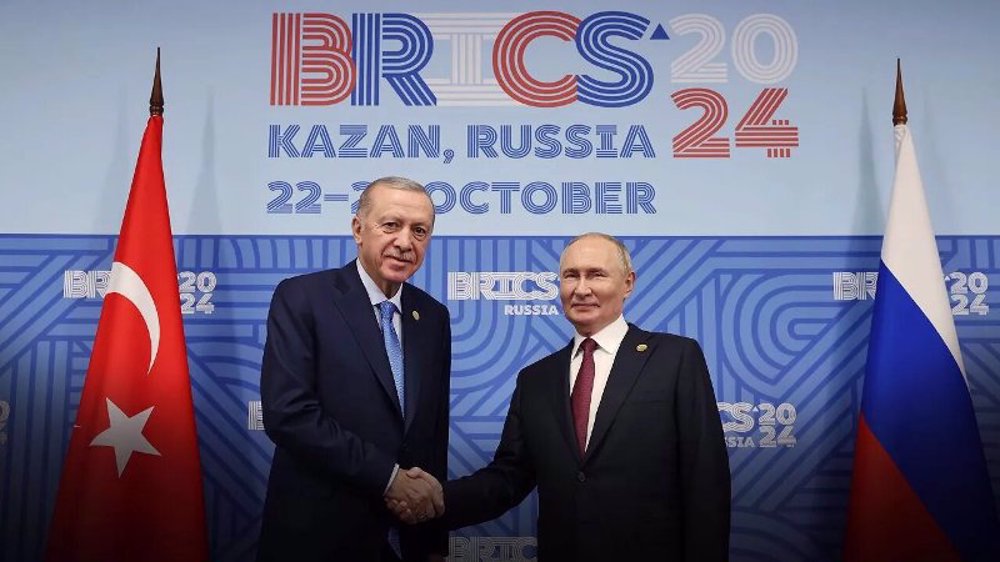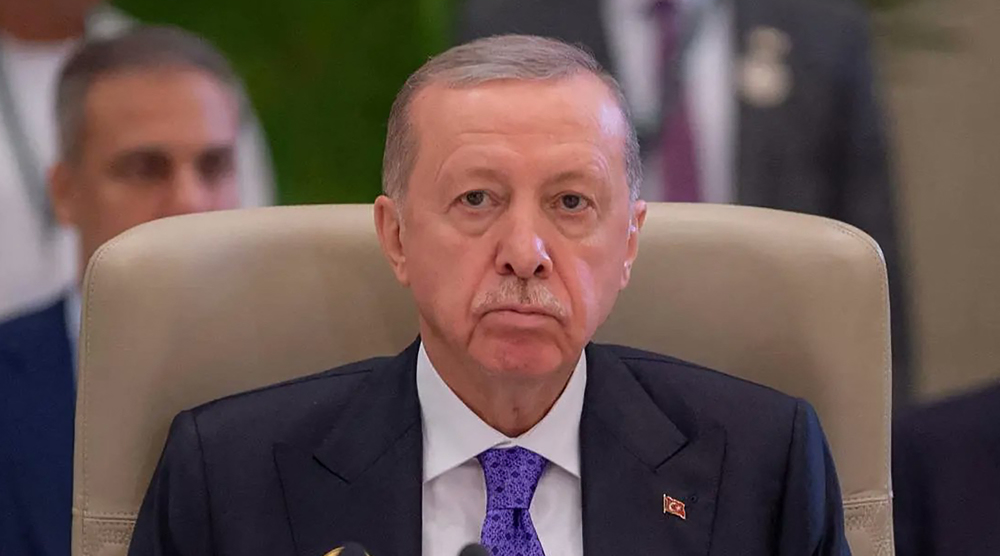Turkish president slams presence of Russia, Iran, US in Syria
Turkey's President Recep Tayyip Erdogan raps the presence of Russia, Iran and the US in its war-ravaged neighbor, Syria.
Speaking among what the Turkish media outlets referred to as “around one million” participants, marking the 563rd anniversary of the Ottoman conquest of Constantinople, the Turkish president pointed the finger at the three countries.
Since the onset of conflict in Syria, Ankara has been implicated for fanning the flames of war in the neighboring country mainly to bring down the Syrian government by supporting Daesh terrorists through measures including conniving their infiltration into the neighboring country or purchasing their illegal oil.
Apart from Iran maintaining its advisers on the ground in Syria and that with the approval of the government in Damascus, the US and Russia have been militarily present in the conflict-ridden country to fight the Takfiris.
Turkey has also been accused by the West of using millions of Syrian refugees as a tool to seek its interests in the EU.
"What business have Russia and Iran (in Syria)?” the Turkish president asked in Istanbul Sunday.

He also denounced the US again because of photos showing American troops wearing insignia of Syrian Kurdish People’s Protection Unit (YPG) during an operation in Syria.
“What business do the US soldiers dressed up with the so-called patches of a terror organization have there?"
Unlike Turkey, the United States does not consider the YPG as a terrorist group but US officials said later the soldiers were not authorized to wear the insignia of YPG, which is fighting the Daesh Takfiri terrorists.
In its so-called war on Daesh, Turkey has also been attacking Kurdish forces, including the Kurdistan Workers’ Party (PKK) militant group, engaged in a three-decade fight for autonomy in Turkey's Kurdish-dominated southeast and regarded as a terrorist organization both by Ankara and Washington.

Since late September 2014, the US along with some of its allies has been conducting airstrikes purportedly against Daesh extremists inside Syria without any authorization from Damascus or the United Nations.
Tehran, meanwhile, has called for a diplomatic solution to the crisis, arguing the fate of President Bashar al-Assad can be determined by the Syrian people alone.

United Nations Special Envoy for Syria Staffan de Mistura estimates that over 400,000 people have been killed in the crisis since then.
More than half of Syria’s pre-war population of about 23 million is said to have been displaced.
VIDEO | Press TV's news headlines
VIDEO | US-Israeli genocide: Will Gazans see ceasefire deal achieved?
VIDEO | Grief strikes Parachinar: 44 lives lost in terror attack
VIDEO | Yemen’s armed forces target Israeli airbase amid nationwide pro-Palestinian rallies
Putin vows more test of new hypersonic missile
VIDEO | Jordanians continue rallies to denounce Israeli genocide in Gaza, Lebanon
6 Israeli soldiers commit suicide: Reports
Diplomat discourages recourse to pressure, intimidation, confrontation against Iran










 This makes it easy to access the Press TV website
This makes it easy to access the Press TV website